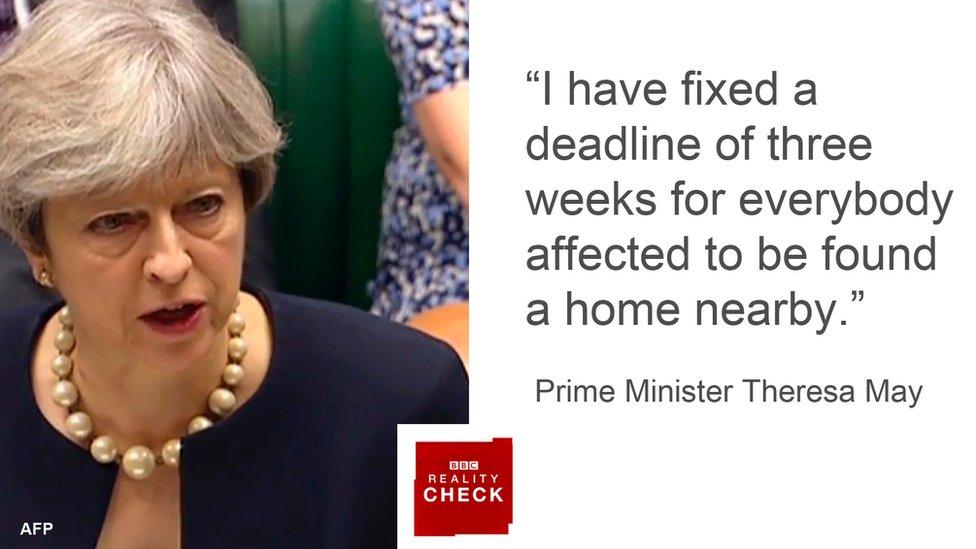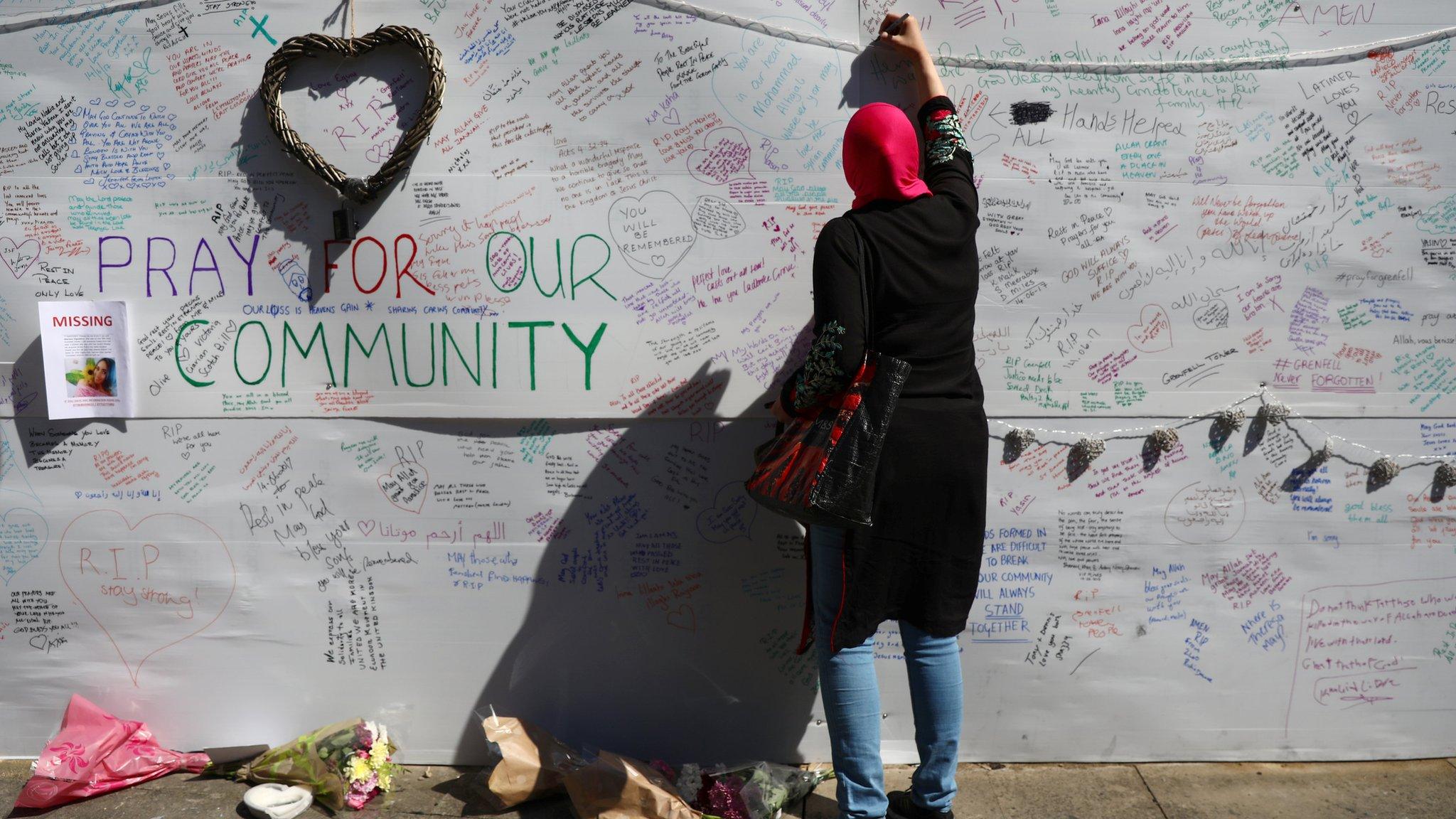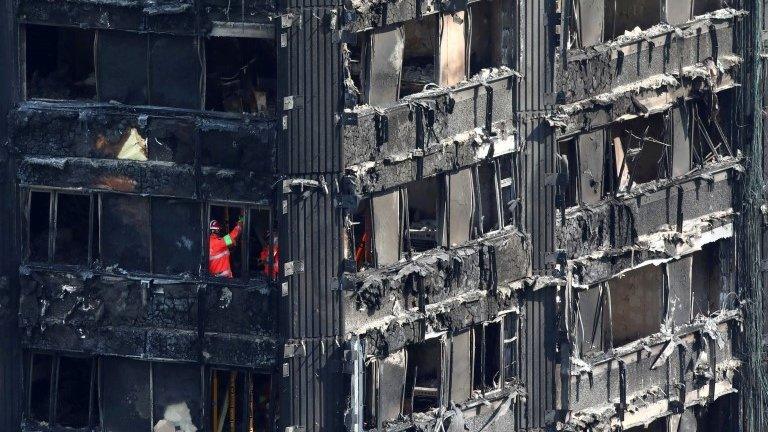Reality Check: Did government keep Grenfell rehousing promise?
- Published

The claim: Every person made homeless by the Grenfell fire will receive an offer of accommodation by Wednesday, 5 July.
Reality Check verdict: Council officials say offers of temporary accommodation have been made to 139 of 158 households and the remaining 19 households did not want any contact with the council at this time. But only nine of these offers have so far been accepted.
Days after the tragedy, Theresa May said she had "fixed a deadline of three weeks for everybody affected to be found a home nearby."
On 22nd June, she said, "all those who have lost their homes have been offered emergency hotel accommodation; and all will be offered rehousing within 3 weeks."
Since then the Communities Secretary, Sajid Javid, has been referring to temporary homes.
On Monday, Mr Javid said that the prime minister's promise , externalwould be honoured and that the 158 households who lost their homes would be offered "temporary accommodation" by Wednesday 5 July.
At this stage, families are being offered temporary homes rather than hotel rooms to stay in, until a genuinely permanent home is found for them.
The Grenfell Fire Response Team, made up of local and central government, the Red Cross, the Metropolitan Police and the London Fire Brigade, have now offered accommodation to 139 Grenfell households who lost their homes as a result of the fire.
Nineteen households did not want to be contacted by the council at this time, family liaison officers told the response team. Some of them are currently out of the country.
This means the team will have met the three-week target of making an offer of accommodation to those affected.
Where are the survivors?
However, only nine households have accepted the offer so far.
At the moment, the majority of survivors are living in hotels or bed and breakfast accommodation.
We do not yet know exactly why the other 130 households have not accepted the accommodation offered to them.
But the leader of the Kensington and Chelsea Labour group, Robert Atkinson, said traumatised people were being pushed to make decisions too soon because of Theresa May's promise.
He said some families currently staying in hotels and temporary housing were not accepting offers of intermediate accommodation because they did not want to keep moving and preferred to wait for a permanent offer.
One tenant from the tenth floor of Grenfell Tower, who only gave his name as Antonio, is among those who turned down the offer of temporary accommodation.
"We want to move to a permanent accommodation so we can remake it and then we can call it home," he told BBC Radio 5 live.
A spokesperson for the response team said people were still considering the offers but may be hesitating for a number of reasons including distance to children's schools and suitability for elderly or disabled residents.
Some survivors wanted to remain in the borough, others wanted to be placed as far away as possible, while others still, understandably traumatised, have been reportedly turning down offers of accommodation in tower blocks, or in sight of Grenfell Tower.
The offered accommodation is either within the borough of Kensington and Chelsea or as close as possible within neighbouring boroughs, according to the response team.
If an offer of accommodation is turned down, family liaison officers will work with residents to find a suitable alternative. At the moment, it appears this process will continue until survivors are provided with accommodation with which they are happy.
- Published18 May 2018

- Published4 July 2017
